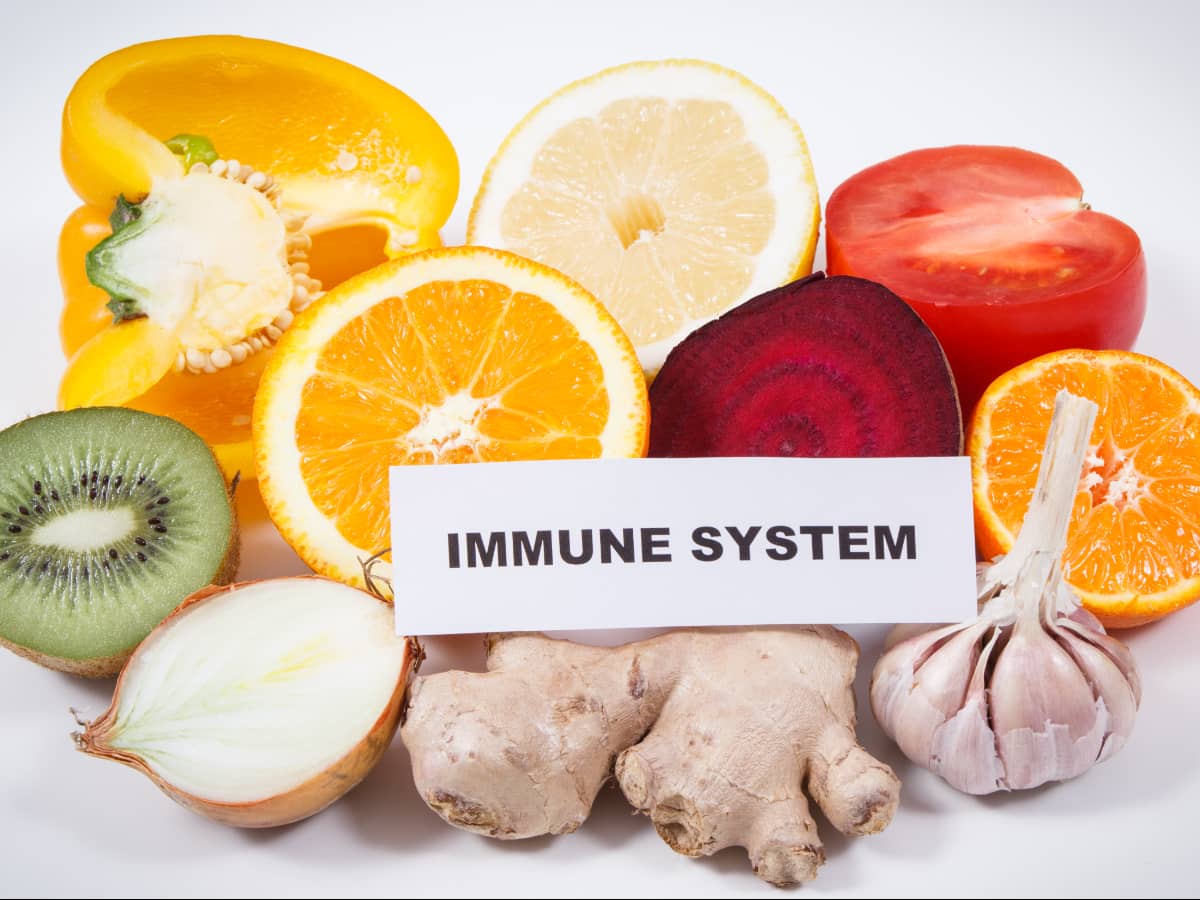In the current era, chronic inflammation has emerged as a widespread health issue, intricately connected to various diseases like heart disease, rheumatoid arthritis, and inflammatory bowel disease. While inflammation is a typical immune reaction, its chronic form can be detrimental. Modifying one's diet is a key strategy in battling inflammation, and grasping the significance of food sensitivities in this context is imperative.
Understanding Inflammation

Inflammation serves as the body’s protective mechanism, a crucial aspect of the immune response to harm and infection. Acute inflammation is a short-lived reaction, instrumental in kick-starting healing. On the other hand, chronic inflammation is a prolonged, low-intensity state that can persist for prolonged periods. It arises when the immune system repeatedly triggers the inflammatory response unnecessarily, causing damage to healthy cells, tissues, and organs, and fostering various diseases.
Inflammation is a complex biological process, involving immune cells, blood vessels, and molecular signals. It commences when the body identifies harm or infection, initiating an inflammatory reaction to remove harmful entities, mend damage, and restore normalcy. This response is marked by redness, swelling, heat, and discomfort.
During inflammation, immune cells emit inflammatory signals like cytokines and chemokines, drawing more immune cells to the inflammation site. These cells combat invaders, clear out damaged cells and debris, and begin tissue repair.
Common Inflammation Triggers
Inflammation can stem from infections, injuries, chronic diseases, environmental factors, stress, sedentary lifestyle, smoking, alcohol, and poor dietary habits. Genetics, autoimmune conditions, aging, and psychological stressors also contribute significantly to inflammation.
Diet's Influence on Inflammation
The relationship between food and inflammation is critical. This segment discusses inflammatory and anti-inflammatory foods, highlighting the importance of understanding this relationship for developing an anti-inflammatory diet. The significance of food sensitivities in inflammation, supported by scientific research, is also explored. Recognizing the risks and benefits of an anti-inflammatory diet is essential for making educated dietary changes.
Inflammation-Inducing Foods

Processed foods, red meats, and sugary drinks are known to provoke inflammation. Trans fats, refined carbs, and artificial additives also have pro-inflammatory effects. High intakes of saturated fats, omega-6 fatty acids, red meats, and dairy products are associated with elevated inflammation levels. Managing chronic inflammation thus involves reducing these inflammatory food sources.
Foods with Anti-Inflammatory Properties
Integrating whole foods, leafy vegetables, and fresh fruits into your diet leverages their anti-inflammatory capabilities. Olive oil, fatty fish, and nuts, rich in anti-inflammatory nutrients, are beneficial. The Mediterranean diet is renowned for its anti-inflammatory focus. Dark chocolate, berries, and spices, alongside whole grains and legumes, also contribute significantly to inflammation reduction.
Exploring Food Intolerances
Food intolerances, characterized by difficulty digesting certain foods resulting in bloating, diarrhea, and inflammation, differs from food allergies as it doesn't activate the immune system.
Often stemming from enzyme deficiencies or sensitivities, chronic food sensitivity can lead to systemic inflammation, posing risks for various conditions like cardiovascular disease, metabolic syndrome, and inflammatory bowel disease. Understanding and managing food sensitivities is key in reducing inflammation risks and related health complications.
Prevalent Food Sensitivities
Common triggers include lactose, gluten, and fructose, along with sensitivities to specific food additives. The severity of food sensitivities varies, influencing inflammation levels. Identifying and managing these sensitivities is critical in reducing inflammation and enhancing overall health.
Symptoms of Food Sensitivity

Food sensitivities often cause digestive discomfort post-consumption of specific foods. Skin issues like rashes and eczema, migraines, joint pain, fatigue, and respiratory problems such as asthma can also indicate food sensitivities.
Linking Food Sensitivities and Inflammation
Chronic inflammation from food sensitivities can initiate a series of health problems. The body's reaction to these sensitivities can trigger an inflammatory response that damages healthy cells and amplifies oxidative stress, affecting the immune system. This elevates the risk of inflammation-related conditions like heart disease, metabolic syndrome, and inflammatory bowel disease.
Support from Scientific Research
Research has consistently shown a direct link between food sensitivities and inflammation. Studies have demonstrated the influence of food sensitivities on inflammation biomarkers, establishing a clear connection.
The correlation between food sensitivities and chronic inflammation is well-documented, as is the relationship between these sensitivities and inflammatory diseases. This comprehensive review of research underscores the significant impact of food sensitivities on inflammation and inflammatory diseases.
Dietary Strategies Against Inflammation
An anti-inflammatory diet plan includes antioxidant-rich foods like leafy greens, berries, and fatty fish. Nutritional advice for those with food sensitivities involves identifying and eliminating trigger foods.
Managing food sensitivities requires conscious food choices and awareness of food intake. Plant-based or vegan diets, as well as unsaturated fats and the avoidance of processed foods, can aid in weight loss and combat inflammation. The MIND diet, known for its potential in reducing Alzheimer's disease risk, emphasizes brain-healthy food consumption.
Formulating an Anti-Inflammatory Diet Plan

An effective anti-inflammatory diet plan focuses on whole grains, fresh fruits, leafy greens, and fatty fish to control inflammation. This plan prioritizes foods that counteract inflammation and minimizes processed food intake, potentially reducing the risk of inflammation-related conditions like heart disease, metabolic syndrome, and inflammatory bowel disease.
Nutritional Guidelines for Food Sensitivity
Addressing food sensitivities involves a nutrient-rich diet, emphasizing whole foods and balanced nutrition to combat inflammation. These guidelines are designed to manage food sensitivities effectively.
Tips for Food Sensitivity Management
Effective management involves scrutinizing food labels for triggers, maintaining a detailed food diary, and consulting healthcare professionals or dietitians for personalized guidance. Gradual dietary adjustments are advisable to monitor their effects and ensure sustainable management of food sensitivities. Being aware of food triggers and making informed choices is essential in managing food sensitivities and reducing their health impacts.
Considerations and Risks of an Anti-Inflammatory Diet

When adopting an anti-inflammatory diet, being aware of potential risks and considerations is crucial. Firstly, significant changes in diet could result in nutrient deficiencies, adversely affecting health and wellbeing. Secondly, for those with pre-existing health conditions, it's important to seek medical advice to prevent negative health impacts.
Additionally, abrupt changes in diet may influence lifestyle and social interactions, posing challenges to maintaining the diet. Importantly, maintaining a balanced and diverse diet is essential to avoid nutrient deficiencies. Being aware of these aspects aids individuals in making well-informed dietary decisions to manage inflammation effectively.
Preparations for an Anti-Inflammatory Diet
Before initiating an anti-inflammatory diet, consulting with a healthcare professional is vital to understand its effects on health. Individuals should evaluate their food intolerances prior to starting this dietary approach, considering necessary adjustments. In-depth research into the effects of an anti-inflammatory diet is crucial for making educated dietary changes.
Potential Dangers and Side Effects
Long-term inflammation in the body can be a result of food intolerances, negatively impacting overall health and exacerbating conditions like rheumatoid arthritis. Certain diets linked to food intolerances may lead to metabolic diseases, and specific foods might provoke inflammatory responses, affecting the immune system.
The negative outcomes of food intolerances can appear as inflammation markers, increasing the risk of conditions such as heart disease and metabolic syndrome. Recognizing these potential dangers and side effects is key in addressing food intolerances and their influence on inflammation.
Effectiveness of an Anti-Inflammatory Diet in Curing Inflammation
An anti-inflammatory diet may help in reducing and managing chronic inflammation but might not be a complete cure. Dietary changes have been observed to reduce inflammatory biomarkers, but eradicating inflammation solely through diet may not be achievable.
It's important to understand food intolerances and their effects on health to manage inflammation effectively through diet. Integrating an anti-inflammatory diet can support overall health by aiding in inflammation reduction.
Frequently Asked Questions
What is an Anti-Inflammatory Diet?

An anti-inflammatory diet involves consuming foods known to reduce inflammation in the body while avoiding foods that may trigger it. This typically includes a high intake of vegetables, fruits, whole grains, lean protein, and healthy fats, and a reduced intake of processed foods, red meats, and refined sugars.
How Do Food Intolerances Affect Inflammation?
Yes, food intolerances can lead to inflammation. When you consume foods that your body struggles to digest or has a sensitivity to, it can trigger an immune response, leading to inflammation. Identifying and avoiding these foods is a key aspect of an anti-inflammatory diet.
Will an anti-inflammatory diet completely cure my inflammatory condition?
While an anti-inflammatory diet can significantly reduce inflammation and alleviate symptoms, it is not a complete cure for inflammatory conditions. It should be viewed as a complementary approach that can support other medical treatments.
What are the common foods to avoid on an anti-inflammatory diet?
On an anti-inflammatory diet, it's generally advised to avoid or limit foods that can trigger inflammation. These include processed meats, refined carbs, fried foods, sodas, and foods with high levels of sugar and unhealthy fats.
Should I consult a healthcare professional before starting an anti-inflammatory diet?
Yes, it's important to consult with a healthcare professional before beginning an anti-inflammatory diet, especially if you have existing health conditions or are taking medication. A healthcare provider can offer personalized advice and ensure that the diet complements your health needs.
Conclusion
In combating inflammation, understanding its causes and the role of diet in its management is essential. Certain foods can provoke inflammation, while others possess anti-inflammatory qualities. Acknowledging food intolerances is also important, as they can contribute to inflammation.
Scientific evidence supports the link between food intolerances and inflammation. Implementing dietary modifications and forming an anti-inflammatory diet plan can effectively manage inflammation. Nevertheless, consulting a healthcare professional before starting any new diet is crucial.
An anti-inflammatory diet may not completely eradicate inflammation, but it can greatly diminish symptoms and enhance overall health. By making informed dietary choices, you can proactively manage your health and combat inflammation naturally. To decide on a particular diet, you need to first identify the foods that your body is intolerant to. You can use Advance Food Intolerance Labs (AFIL) at-home food intolerance test kits to find out which foods your body cannot tolerate.
Watch AFIL test kits testimonial videos click here
References:
- Margină, Denisa, et al. "Chronic inflammation in the context of everyday life: dietary changes as mitigating factors." International journal of environmental research and public health 17.11 (2020): 4135.
- Iweala, Onyinye I., and Cathryn R. Nagler. "The microbiome and food allergy." Annual review of immunology 37 (2019): 377-403.
- Ricordi, Camillo, Marta Garcia-Contreras, and Sara Farnetti. "Diet and inflammation: possible effects on immunity, chronic diseases, and life span." Journal of the American College of Nutrition 34.sup1 (2015): 10-13.
- Berni Canani, Roberto, et al. "Gut microbiome as target for innovative strategies against food allergy." Frontiers in immunology 10 (2019): 191.
- Isolauri, Erika, et al. "Role of probiotics in food hypersensitivity." Current opinion in allergy and clinical immunology 2.3 (2002): 263-271.


.png?v=1737390083)
.png?v=1737187409)


